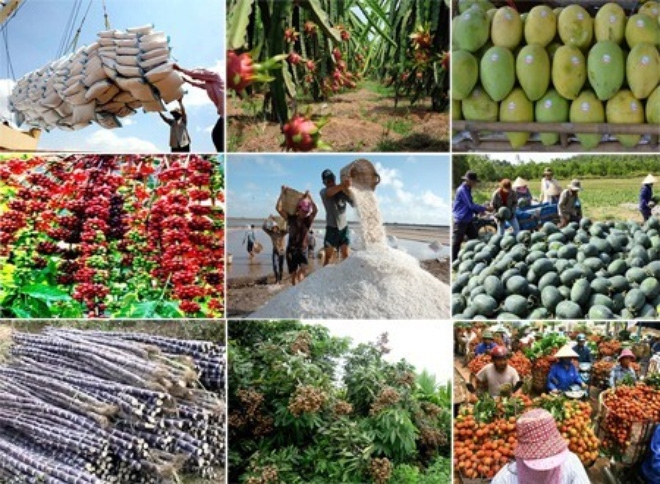Greater opportunities for Vietnamese goods to EU after three-year EVFTA enforcement
VOV.VN - The EU-Vietnam Free Trade Agreement (EVFTA), which came into force on August 1, 2020, represents one of the most important factors in helping the nation to succeed in bringing agricultural products to the EU market, including seafood, and some fresh and special agricultural products.
This assessment was made by Tran Ngoc Quan, commercial counselor of Vietnam in the Kingdom of Belgium and the EU, in a recent exchange held with the media.
According to Quan, competition in the EU rice market is fierce, not only because of quota issues, but also because of very high taxes. In relation to Vietnam, this item has been placed in the group entitled to enjoy a 0% tariff rate according to the tariff quota specified in the EVFTA.
This represents a great opportunity for Vietnamese rice in Europe, providing that the country exploits the market well and competently meets EU standards. During the past year, the nation shipped 97,000 tonnes of rice to the EU, up 65% compared to 2021’s figures.
Quan also noted that there many standards for rice, including those on pesticide residues. Therefore, rice exported to the EU must pass strict control stages, he said, adding that in case the standards are not met, the products will be recalled, which will in turn negatively affect the reputation and brand of Vietnamese rice.
Referring to Vietnamese exports to the European market over recent times, Quan said that as well as the global economic situation in general, the European economy has faced plenty of difficulties over recent years which has led to a decline in exports of many countries to this continent.
However, the nation still maintains a strong export growth rate to the EU, and one of the main reasons for this positive result is thanks to the effective enforcement of the EVFTA.
The data recorded in the EU's trade balance also indicates that this is one of the successful agreements and one of the solutions which has helped the economy to overcome the difficulty of supply chain disruption faced over recent times.
The trade official noted that in relation to agricultural products, the tariffs of many items were reduced to 0% immediately when the trade pact took effect or will gradually decrease to the point over a period of three to five years, adding that this is a significant advantage for Vietnamese farm produce in entering the EU.
In relation to Vietnam, the nation is among the commodities enjoying an EVFTA-induced 0% tariff rate, he stressed, while stating that both sides’ two-way trade has also grown, signaling a positive development. Exports from the EU to the Vietnamese market in the years 2021 to 2022 surged by between 20% and 25%. European goods are of high quality and sustainable, thereby helping to enhance the value standards of Vietnamese products.
With regard to the EU’s stricter requirements of commodity quality, sustainability, and safety, the diplomat recommended that the nation shift from producing a large quantity for reasonable cost to focusing on sustainable products with value added in order to better meet EU standards.
According to Quan, his office has continuously updated and disseminated information relating to the bloc’s regulations to businesses, adding that without immediate preparation, the nation could easily miss opportunities, as it's a competition of not only market access, but also quality meeting stringent standards.

